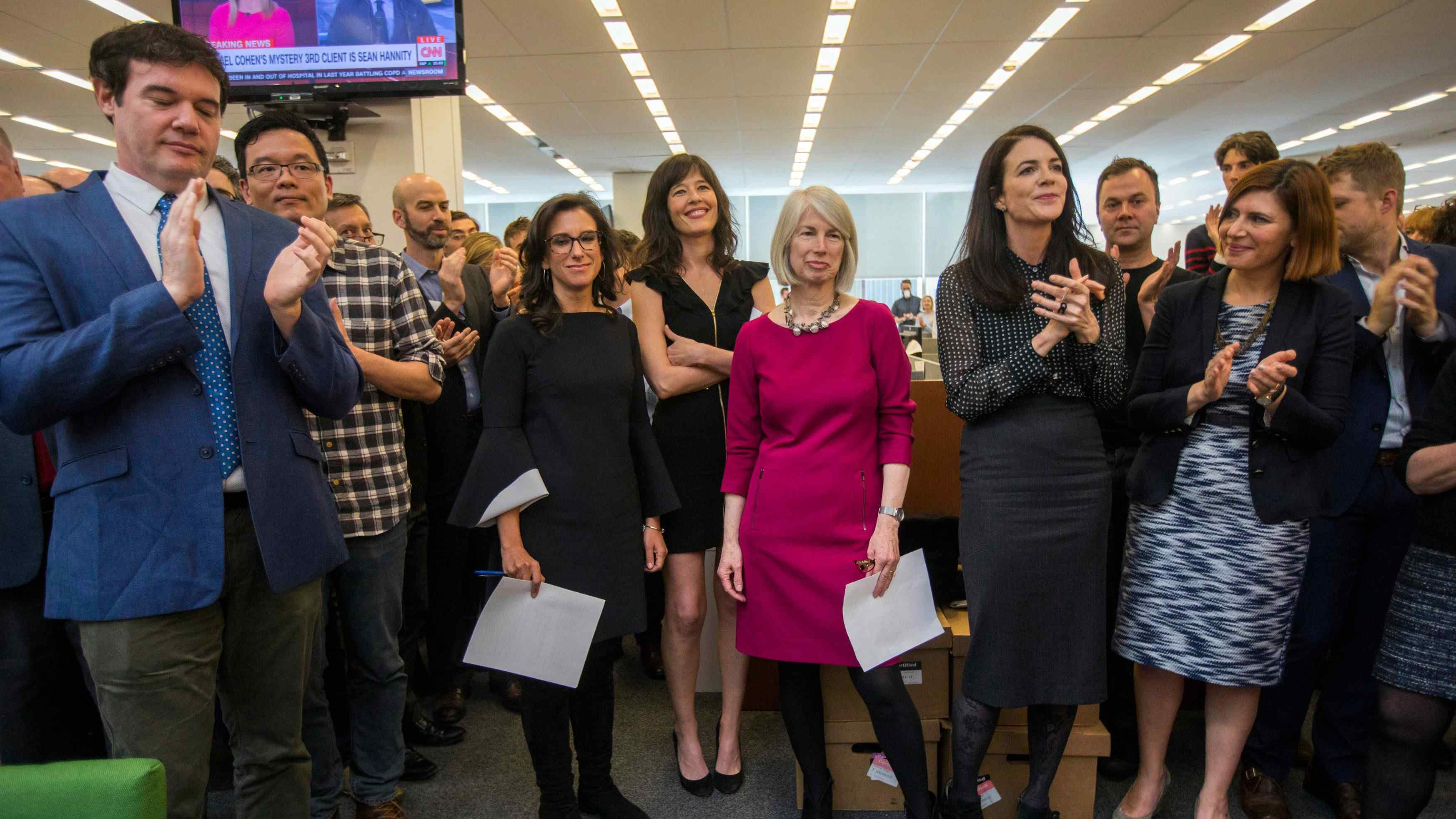
World
16:07, 17-Apr-2018
NYT, New Yorker win Pulitzer for #MeToo reporting
CGTN

The Pulitzer Prize for public service was awarded to the New York Times and The New Yorker on Monday for their explosive reporting that brought down Harvey Weinstein and spawned a cultural watershed on the issue of sexual harassment.
The prestigious prize was awarded to the Times team led by Jodi Kantor and Megan Twohey and New Yorker contributor Ronan Farrow, for reports that disgraced the Hollywood mogul and sparked an avalanche of accusations against other powerful men.
Since the Times and New Yorker articles last October, more than 100 women have publicly accused the producer of misconduct ranging from sexual harassment to rape, sparking the #MeToo movement that has seen a string of influential men lose their jobs and reputation.

New Yorker contributor Ronan Farrow. /VCG Photo
New Yorker contributor Ronan Farrow. /VCG Photo
Weinstein's marriage has ended, he has been under police investigation in London, Los Angeles and New York, hit by a litany of civil lawsuits and his former production company has been forced to file for bankruptcy.
Farrow, 30, is the son of actress Mia Farrow and film director Woody Allen. He has fronted his own television show, worked in Afghanistan and Pakistan for late US diplomat Richard Holbrooke, and advised Hillary Clinton on global youth issues when she was secretary of state.
The former Rhodes scholar, who graduated from Yale Law School at just 21, has sided with his sister Dylan's claims that Allen molested her when she was seven. Allen has repeatedly denied the allegations.
"So so so proud," tweeted Mia Farrow minutes after her son's award was announced. Ronan Farrow paid tribute to his co-winners and The New Yorker.
"This moment gets called a reckoning, but we just started telling the truth about old abuses of power. Thanks to all who keep doing so," he wrote on Twitter to his nearly half a million followers.
The 102nd edition of the Pulitzer Prizes was announced at Columbia University in New York by administrator Dana Canedy at a time when the US news media is still under assault from the White House for peddling "fake news."

New York Times staff celebrate after winning the 2018 Pulitzer Prize
for Public Service in New York, US, April 16, 2018. /Reuters Photo
New York Times staff celebrate after winning the 2018 Pulitzer Prize for Public Service in New York, US, April 16, 2018. /Reuters Photo
Canedy praised the winners but also counselled the media to do more to improve trust with a skeptical public and to work harder to include more varied gender and racial perspectives.
The Washington Post won the Pulitzer in the investigative category for relentless reporting seen as having influenced the outcome of the 2017 Senate race in Alabama, revealing Republican candidate Roy Moore's alleged past sexual harassment of teenage girls.
Moore's opponent Doug Jones won the race last December, becoming Alabama's first Democratic senator in 25 years and dealing a humiliating blow to President Donald Trump's Republican administration.
The New York Times and The Washington Post shared the national reporting prize for furthering understanding of Russian interference in the 2016 election, and the connections between Russian actors and the Trump campaign, his transition team and administration, Canedy said.
"Winners uphold the highest purpose of a free and independent press even in the most trying of times," she announced.

Reuters won in the feature photography category for its coverage of the Rohingya crisis. An exhausted Rohingya refugee woman touches the shore after crossing the
Bangladesh-Myanmar border by boat through the Bay of Bengal, in Shah Porir Dwip,
Bangladesh, September 11, 2017. /Reuters Photo
Reuters won in the feature photography category for its coverage of the Rohingya crisis. An exhausted Rohingya refugee woman touches the shore after crossing the Bangladesh-Myanmar border by boat through the Bay of Bengal, in Shah Porir Dwip, Bangladesh, September 11, 2017. /Reuters Photo
"These courageous, inspiring and committed journalists and their news organizations are undaunted in their mission in support of the fourth estate.
"It is a mandate that has been under a seemingly relentless assault of late but that remains central to a healthy democracy," she added.
Reuters won the 2018 prize in international reporting for coverage of Philippine President Rodrigo Duterte's war on drugs. Reuters also won in the feature photography category for its coverage of the Rohingya crisis.
The prize for breaking news photography went to Ryan Kelly of The Daily Progress for a chilling image that captured the moment of impact by a car at a racially-charged protest in Charlottesville, Virginia that left one woman dead last August.
The Pulitzer for fiction went to Andrew Sean Greer for "Less" about growing older and love. The history prize was awarded to "The Gulf: The Making of An American Sea," and the prize in drama for "Cost of Living" by playwright Martyna Majok.
Source(s): AFP

SITEMAP
Copyright © 2018 CGTN. Beijing ICP prepared NO.16065310-3
Copyright © 2018 CGTN. Beijing ICP prepared NO.16065310-3